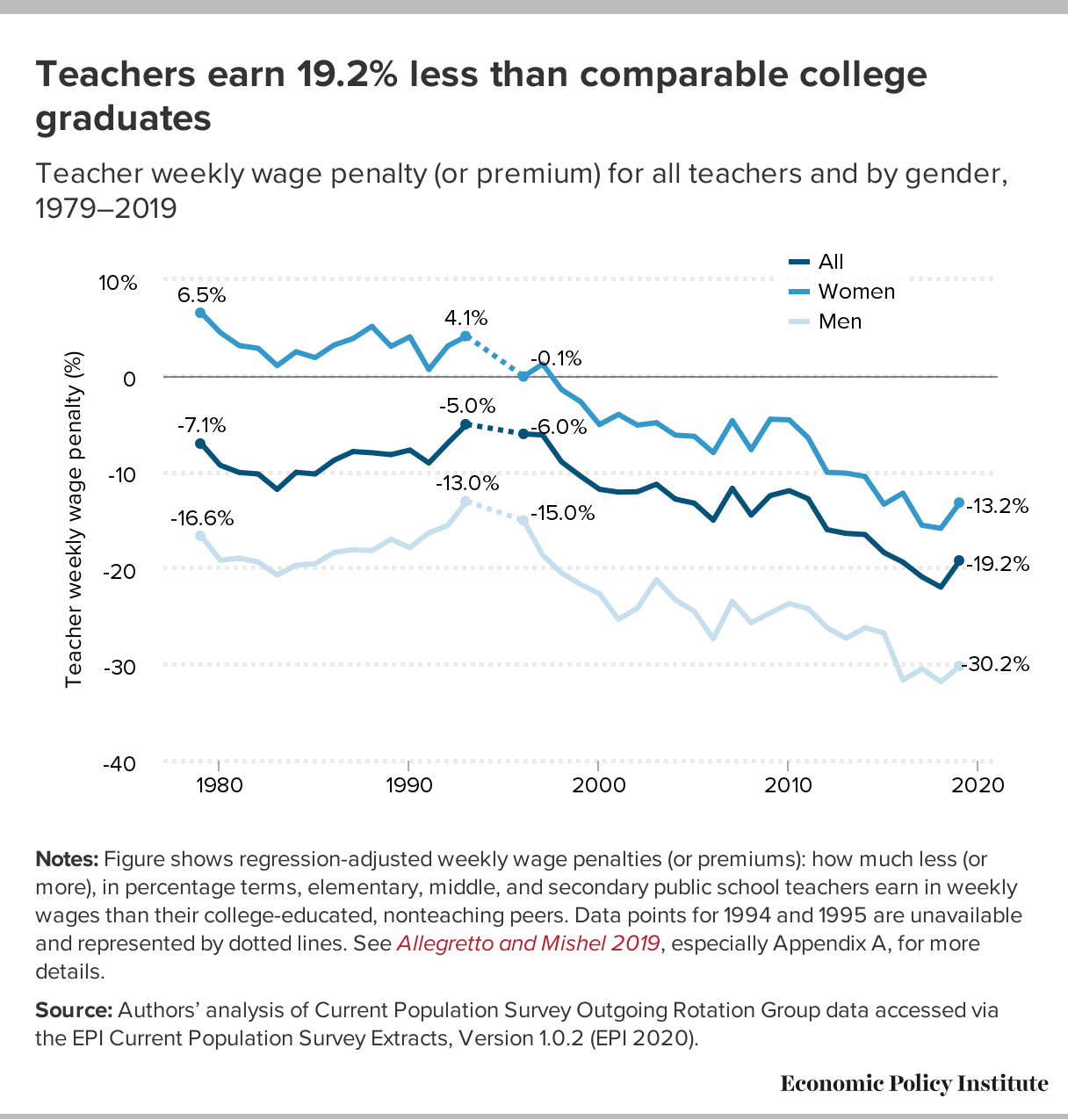Most of us probably have a favorite teacher that has inspired or left a lasting impact on us. For me, I have a few and they are from 2nd grade, 6th grade, and 12th grade English.
Each one has taught me both academic and non-academic lessons that I do not think I will ever forget. But most importantly, they have proven to me that among all school-related factors that influence achievement, teacher quality is one of the most essential. Research shows that effective teachers can have long-term effects on students and are a big contributor to their academic success. This includes spending their own money on supplies, voluntarily working after-hours, and going above and beyond as an educator.
But even with evidence and undeniable dedication, teachers continue to suffer from low pay. And it can only become worse under the crisis of COVID-19 with more budgetcuts and layoffs. But this may sound familiar to some educators because of what occurred during 2007 to 2009, the Great Recession.
Over a decade ago, the American education system endured lasting damages from the greatest economic downturn since the Great Depression. Public schools had to make substantial cuts that led to insufficient education funding and lower teacher pay that schools are still attempting to recover from.

Little progress was made in the last couple of years as teachers across the country resorted to activism as a way to bring attention to the critical equity issue. According to the Economic Policy Institute, in 2019, public school teachers were paid 19.2% less compared to similar college-educated workers in other professions. In fact, this gap has increased since the 1990s. But even with the countless strikes and widespread movements, the current pandemic blocks any efforts made to improve the situation.
The average teacher salary through 2018-19 was $58,540. However, teacher pay significantly varies across the nation by state: from approximately $45,000 as the lowest salary to $85,000 as the highest salary in 2020. Evidently, teachers are severely underpaid, to the point that for some, the average teacher does make enough to live in their state.
But now is the time to learn from history, not repeat.
Teachers are underpaid for taking on one of the most important tasks for the future: educating the youth. Particularly during a time like this, where educators have to adjust to a remote learning environment and work more for less, we need them the most! However, economic recovery from the pandemic could take a long time and teacher pay may receive the worst end of it. So EducationWeek has created a list of “moderate-, low-, and no-cost strategies to retain teachers and incentivize the profession.” They include professional development stipends, bonuses/rewards for additional responsibilities, and possible donations from contacting local businesses.